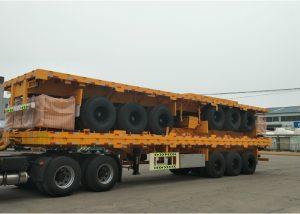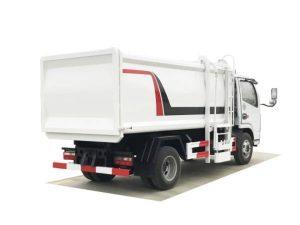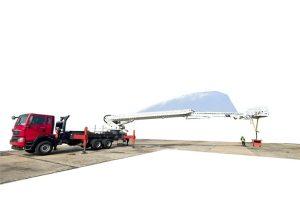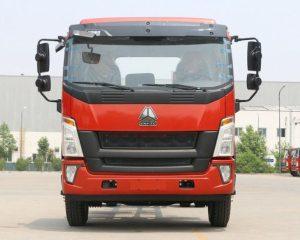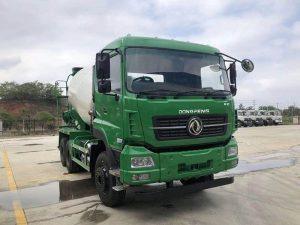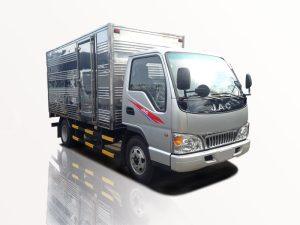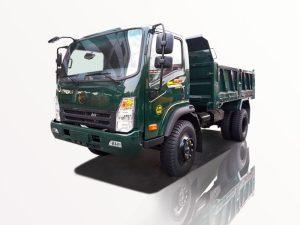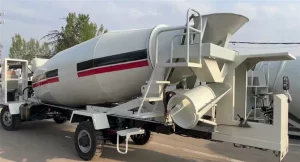Monday to Saturday - 8:00 -17:30
Custom Rolling Chassis for Sale: A Complete Guide
Introduction
For automotive enthusiasts and builders alike, the pursuit of a custom rolling chassis is an exciting venture. Whether you are looking to build a hot rod, a classic car, or a completely unique vehicle, starting with a custom rolling chassis provides a solid foundation for your project. In this guide, we will delve deep into all aspects of custom rolling chassis for sale, covering everything from what they are and why they are valuable, to where to find them and tips for making the best purchase decisions.
What is a Custom Rolling Chassis?
A custom rolling chassis is essentially the frame of a vehicle that includes the wheels, suspension, and drivetrain components. It is designed to be the backbone of a custom-built car, allowing builders to add their own bodywork, engine, and interior according to their specific needs and preferences.
Components of a Rolling Chassis
Understanding the components can help you make an informed choice when buying a custom rolling chassis. Typically, it comprises:
- Frame: The structure that supports the entire vehicle.
- Suspension: Components that connect the wheels to the chassis, absorbing shocks and providing stability.
- Axles: These connect the wheels to the chassis and are crucial for power transfer.
- Wheels and Tires: Vital for mobility and stability on the road.
- Brakes: Essential for safety, allowing the vehicle to slow down or stop when needed.
Why Invest in a Custom Rolling Chassis?
There are several compelling reasons why automotive enthusiasts might opt for a custom rolling chassis:
1. Personalized Builds
With a custom rolling chassis, builders can create vehicles tailored to their specifications. This personalized approach allows for unique designs and styles that stand out.
2. Quality and Durability
Custom rolling chassis are often built with higher quality materials than mass-produced options. This results in a more durable framework that can withstand the rigors of performance driving.
3. Flexibility in Design
The modular nature of rolling chassis allows builders to modify and upgrade components easily. This flexibility means that as technology advances, you can upgrade your vehicle accordingly.
4. Cost-Effectiveness
While the initial investment might be higher, starting with a custom rolling chassis can save money in the long run. Fewer repairs and replacements are often needed compared to traditional vehicles.
Types of Custom Rolling Chassis for Sale
When searching for a custom rolling chassis, it’s important to be aware of the different types available:
1. Street Rod Chassis
Designed specifically for classic cars and trucks, street rod chassis are built for style and performance, often made with lightweight materials.
2. Race Chassis
These are built for speed and durability, often featuring advanced suspension systems and lightweight construction, ideal for competitive racing.
3. Off-Road Chassis
Designed for rugged terrains, off-road custom rolling chassis often include high ground clearance and reinforced suspension systems to handle rough environments.
Where to Find Custom Rolling Chassis for Sale
Finding the perfect custom rolling chassis can be a daunting task, but there are key places to look:
1. Online Marketplaces
Websites like eBay Motors, Craigslist, and specialized vendor sites often have a range of custom rolling chassis available for purchase.
2. Specialty Shops
Local garages and automotive specialty shops sometimes offer custom chassis or can guide you to reputable builders.
3. Auto Shows and Swap Meets
Attending car shows or swap meets can provide opportunities to meet builders and see custom rolling chassis in person.
Considerations When Buying a Custom Rolling Chassis
Before making a purchase, consider the following:
1. Purpose of the Build
Understand what type of vehicle you want to build—whether it’s for everyday driving, racing, or off-roading—as this will affect the chassis you should choose.
2. Material Quality
Inspect the materials used in the frame and components. Steel and aluminum are preferred for their strength and durability.
3. Weight Considerations
The weight of the chassis can significantly impact performance. Lightweight options may be preferable for racing, while heavier options may be better for durability.
4. Warranty and Support
Look for warranties or guarantees from the seller, which can provide peace of mind regarding the quality and durability of the chassis.
Custom Chassis Builders: Top Recommendations
Here are some reputable builders known for manufacturing quality custom rolling chassis:
| Builder Name | Location | Specialty |
|---|---|---|
| Factory Five Racing | Massachusetts, USA | Sports Cars |
| Chassis Engineering | Missouri, USA | Race Chassis |
| Art Morrison Enterprises | Washington, USA | Custom Street Rods |
| Total Performance | Pennsylvania, USA | Specialty Race Chassis |
Common Mistakes to Avoid When Purchasing a Custom Rolling Chassis
To ensure a smooth purchasing experience, avoid these common pitfalls:
1. Skipping the Inspection
Always inspect the chassis in person if possible, checking for any signs of damage or poor craftsmanship.
2. Ignoring Sizing Issues
Ensure that the chassis is compatible with the body you plan to use. Measurements should be verified to avoid costly modifications later.
3. Not Considering Future Modifications
Consider potential upgrades when selecting a chassis. Choosing a design that can accommodate future enhancements will save you hassle down the line.
4. Failing to Research the Seller
Look for reviews and testimonials of the seller or builder to ensure they have a reputation for quality and support.
Tips for Building on a Custom Rolling Chassis
Once you’ve purchased your custom rolling chassis, follow these tips for a successful build:
1. Start with a Plan
Outline your project’s goals, budget, and timeline. Having a clear plan will help you stay organized throughout the build process.
2. Collaborate with Experts
Consult automotive professionals when necessary, particularly for intricate systems like electrical and engine setups.
3. Take Your Time
Rushing can lead to mistakes. Spend the necessary time to do every part of the build correctly.
4. Prioritize Safety
Ensure all safety systems and features are in place and functional, including brakes, lights, and safety equipment.
FAQ: Custom Rolling Chassis for Sale
1. What is the average cost of a custom rolling chassis?
The cost can vary widely based on materials and specifications, but you can expect prices to range from $2,000 to over $10,000.
2. Can I build a custom rolling chassis myself?
Yes, DIY enthusiasts can build a custom rolling chassis, but it requires significant knowledge of automotive engineering and fabrication.
3. What should I look for in a builder?
Look for builders with a solid reputation, positive reviews, quality craftsmanship, and a warranty on their products.
4. Are custom rolling chassis street legal?
Check local regulations as legality can vary by state or country, especially concerning safety standards and emissions.
5. How long does it take to build a vehicle on a custom rolling chassis?
The time can vary based on complexity but typically ranges from a few months to a couple of years, depending on your experience and resources.
6. Can you finance a custom rolling chassis?
Some sellers offer financing options. Alternatively, consider personal loans or financing through automotive specific lenders.


